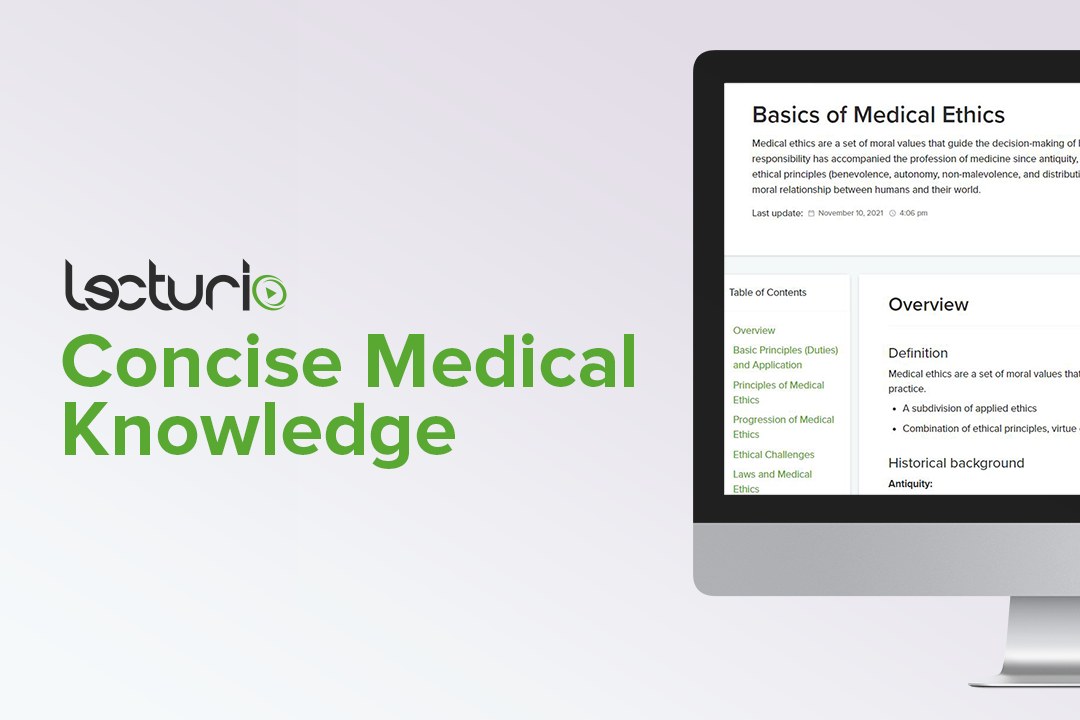Playlist
Show Playlist
Hide Playlist
Principle of Nonmaleficence
-
Slides Principle of Nonmaleficence.pdf
-
Reference List Clinical Ethics.pdf
-
Download Lecture Overview
00:01 The next principle that we would think about is non-maleficence. 00:05 So, people are familiar with the Hippocratic oath, you know, first do no harm. 00:11 So this is a prima facie obligation of everyone, meaning on first phase this is something we ought to, you know, show to everyone. 00:20 We don't want to harm another person. 00:22 And that's important because it recognizes the vulnerability of the human condition. 00:26 All of us are vulnerable to harm. 00:30 You know, the philosopher Hobbes would say "Without the idea of not harming another person, we couldn't have societies. 00:38 Otherwise, you know, life would be nasty, brutish, and short because everyone would be harming each other. 00:44 So, we have to have a first understanding that we should not harm another person." And that also means that we should intentionally refrain from actions that cause wrong or harm. 00:57 And there's a distinction here between the definition of wrong and harm. 01:02 So wronging is violating someone's rights. 01:06 So a person has certain rights that we might as a society agree on that each person has these fundamental rights. 01:13 If we violate those, that's a way we're causing harm to them but we call it wronging. 01:19 There is also harming. So, an adverse effect on someone's interests. 01:24 So causing them pain, causing them physical discomfort. 01:27 That's an actual harm to their well-being. 01:34 Another important element for non-maleficence is the issue of negligence. 01:39 So, especially in medical practice, nursing practice, we have to show due care towards our patients. 01:49 So if we sort of just, you know, don't follow standard of care, if we have an absence of that due care we are actually harming people. 01:57 We learned the practice of medicine, learned the practice of nursing, know how to be a clinician based on our training, and we first of all don't want to intentionally impose risk of harm that are unreasonable. 02:10 We don't want to be reckless in terms of, you know, anything goes if the patient want to we just do it. 02:17 You know, part of this is knowing when to say no, no. 02:21 We think if we follow this course of action, it will be harmful to you and our core principle is first do no harm. 02:30 It also means that you should have known better, you know. 02:33 So if there are situations where you didn't know, you know, but you should have known, you know you should have had the training, you should have had the medical knowledge to know that this could be risky or too greater risk to undertake. 02:47 If you carelessly just follow through on the action, that is an element of being maleficent. 02:55 And then lastly, you know, not following professional standards of care. 02:59 So, generally in most societies, most states or cultures have licensing bodies and they established the standards of care for each profession. 03:11 So when you're a health professional, you have to follow the standards of care. 03:15 If you don't do that, you're negligent in fulfilling your responsibilities as the clinician.
About the Lecture
The lecture Principle of Nonmaleficence by Mark Hughes, MD, MA is from the course Introduction to Clinical Ethics.
Included Quiz Questions
What is the definition of non-maleficence?
- First, do no harm.
- First, do no right.
- First, do no crime.
- Help others.
- Help yourself.
Which of the following is NOT an example of negligence in medical practice?
- Following professional standards of care
- Exhibiting an absence of due care in patient care.
- Being reckless in providing medical treatments.
- Carelessly following through on an action without adequate foreknowledge.
- Not fulfilling your responsibilities based on the training in your discipline.
Customer reviews
5,0 of 5 stars
| 5 Stars |
|
5 |
| 4 Stars |
|
0 |
| 3 Stars |
|
0 |
| 2 Stars |
|
0 |
| 1 Star |
|
0 |




